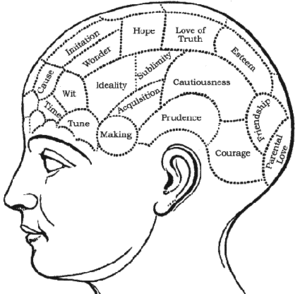Memory
| This article may contain something that has slipped your mind |
Memory is, well, I can't quite remember! Ho-de-do-do! Now that's what I call a knee slapper! Puns are the epitome (prounced "eh pih tohm", get it right slackers) of a dandy piece of literature. Or something.
The Dump[edit | edit source]
But enough about me. This article, my dear friend, is about you!
Well, given you're a 4GB stick of 200-pin SODIMM DDR3 RAM. You are a 4GB stick of 200-pin SODIMM DDR3 RAM, right? Right? No? Well. We have a special section for you.
Welcome, my friend to the dump! This is where we stick all of the 256 MB sticks of RAM such as yourself. Sorry mate, you're just too inefficient to work with computers nowadays. You know computers, right? The rectangular shaped technology boxes? Ummmm... Hmmmm...
| Note to self: remember to add some more content to this page... |
| This article is not finished. Maybe you should help it on its way. |
“I'm sorry... What were we talking about?”
| START AGAIN! |
Memory is a song from the blockbuster musical, CATS, sung by an old, dying cat named Grimy-ballza. But then again, it was written by Sir Andrew Lloyd Webber, so it's probably something best forgotten.
| 100% AGREED! START AGAIN! |
Memory is the ability of the brain to retain information over long periods of time, and recall it when the information is needed later.
Introduction[edit | edit source]
Memory is the ability of the brain to retain information over long periods of time, and recollate it at a later time when the information is needed later. To the best of my recollection, there are three main steps in the memory process.
Memory allows us to recall facts at will, and use those facts when needed. It is one of the most important functions of the brian.
If memory serves, the memory process has three major stages.
- Ingoing or putting things in is the process of paying attention to things while they are happening, and putting that information ... in a, sort of a storage cubby-hole sort of thing so it can be used later.
- Storaging is the phenonmenon of information sitting in the cubby hole... waiting... for you to come back and get it.
- Finding is the process of... figuring out which shelf you left the information on, and taking it down so it can be used for some process or activity.
- Remembering involves the actual discovery and subsequent use of the information once it has been located.
Types of Memory[edit | edit source]
Memory is a complex and multifaceted... thing, and can be claf- ... fisied into several (three) different types.
- Touch memory:
BestCharacterized as remembering what its like to touch things, or have things touch you. Also known as Porn. - Short-term memory: Remembering things that have happened recently.
- Touch memory: Remembering the way that things feel when they come into contact with your skin.
- Long-term memory: Remembering things that happened in the past... but further back than short term memory.
- Short-term memory: Remembering things that have happened in the past, but nearer to the present than long term memory, which remembers things than happened in the more distant past.
Additionally, it is widely accepted that there are three main types of memory. However, due to the limited article scope and database storage space contraints imposed by Illogicopedia, there is neither the time nor space to go into them here.
Language[edit | edit source]
Language is implicitly, explicitly, ... impassively ? something-ending-with-"ly" tied to memory. The ability for us to express the word we intend at the extract time we intend is holey depedance on our ability to axis our stored vocabulary. Difficultness in word choice, or wrong useness of words, does not necesarity mean that the speaker lacks intelligentness, but can be indicative of deeper, more orgasmically based neuro-somethinglogical problems which require intimidate medicinal attention.
Identity[edit | edit source]
Our knowledge of self is deeply ingrained in our memory, which is why neuro-psychicological diseases like... that one that gets talked about on the news a lot, can be so devesating to individual functioning.
Consider the effect that your own lifetime of experiences have had on the formation of your personality. For example, there was this time in grade five when the teacher took this story that I had written, gaven it to the secretaty to type into a presentation, and then he presented it to the class. He asked the class for their opinions about the story, and when the response was uniformily... umm, universally positive, he revealated that the story had, in fact, bean written by me! I am sure you can imagine the affect that this experience had on my sense of self, and the subsidence... subsequent impaction it had on my future (which, if you haven't alredy guessed, revolves a lot of writing).
Anyway... really good story. What was I talking about again?
Ah, yes! Memory is the ability of the brain to retent information over long periods of time, and recreate it at some later time when the information is needed later...What was I talking about again.....? Oh yes the discussion of the ROYAL CANTERLOT VOICE!!!! Banished to the MOOOOOON FOR 1000 YEARS! IS NO FUN YOU HEAR ME RIGHT!


